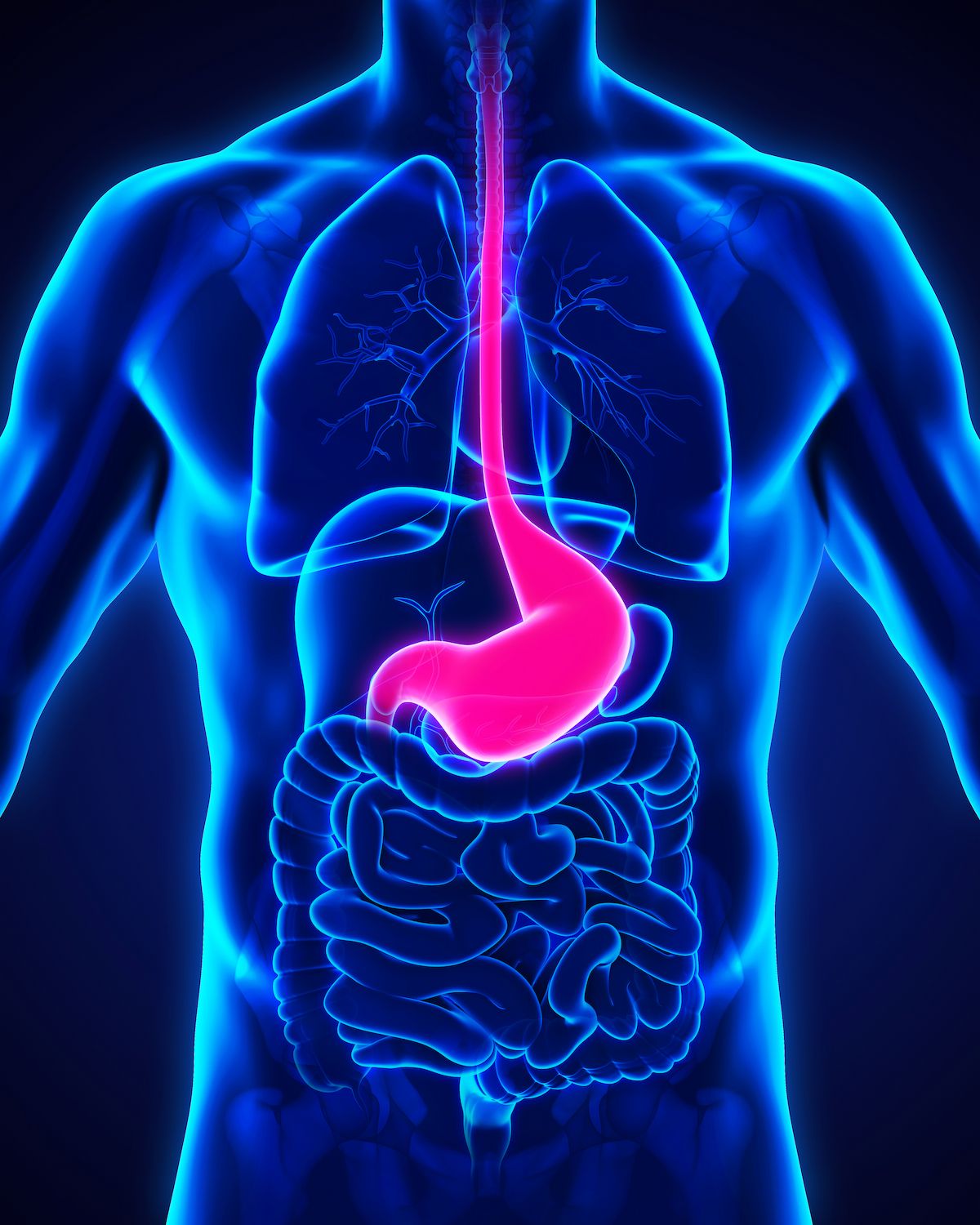Frontline Nivolumab Combo Shows Enduring Activity in MSI-H Gastric Cancer
Phase 2 data may support nivolumab plus low-dose ipilimumab as a promising option in patients with microsatellite instability–high gastric cancer.
"In conclusion, the [nivolumab plus low-dose ipilimumab] regimen showed robust and durable clinical activity as a first-line treatment for patients with MSI-H [advanced gastric cancer]," according to the study authors.

Combining nivolumab (Opdivo) with low-dose ipilimumab (Yervoy) demonstrated robust activity in a small cohort of patients with microsatellite instability–high (MSI-H) gastric or esophagogastric junction cancer, according to findings from a Japanese phase 2 trial (jRCT2080225304) published in the Journal of Clinical Oncology.1
The study treatment yielded an objective response rate (ORR) of 62.1% (95% CI, 42.3%-79.3%) per blinded independent central review (BICR), which included complete responses (CRs) in 10.3% and partial responses (PRs) in 51.7%. The disease control rate (DCR) was 79.3% (95% CI, 60.3%-92.0%), and the median duration of response (DOR) was not reached (NR; 95% CI, 12.6-NR).
Based on investigator assessment, the ORR was 69.0% (95% CI, 49.2%-84.7%), with CRs and PRs reported in 6.9% and 62.1% of patients, respectively. Additionally, the DCR was 93.1% (95% CI, 77.2%-99.2%) and the median DOR was NR (95% CI, 7.2-NR).
The median time to response (TTR) per BICR was 1.4 months (95% CI, 1.3-2.6). The treatment produced a median PFS and OS of 13.8 months (95% CI, 13.7-NR) and NR (95% CI, 13.7-NR), respectively. At 12 months, the estimated PFS and OS rates were 73.3% (95% CI, 51.7%-86.5%) and 79.5% (95% CI, 56.8%-91.1%).
“In conclusion, the [nivolumab plus low-dose ipilimumab] regimen showed robust and durable clinical activity as a first-line treatment for patients with MSI-H [advanced gastric cancer],” lead study author Hisato Kawakami, MD, PhD, from the Department of Medical Oncology at Kindai University Faculty of Medicine in Osakasayama, Japan, and the Department of Clinical Oncology at Tohoku University Graduate School of Medicine in Sendai, Japan, wrote with coauthors.1 “Although the incidence of treatment-related adverse effects [TRAEs] necessitating treatment discontinuation was relatively high for this regimen, the tumor response was often sustained after such discontinuation. [Nivolumab plus low-dose ipilimumab] is thus a promising treatment option for individuals with MSI-H [advanced gastric cancer].”
According to the study authors, the prognosis of patients with advanced gastric or esophagogastric junction cancer remains poor despite advancements in chemotherapy. Moreover, with the advent of immune checkpoint inhibitors (ICIs) in the field, anti–PD-1 agents plus chemotherapy have become a standard of care for patients with HER2-negative advanced gastric cancer.2 In particular, MSI-H status has served as a positive predictive biomarker for efficacy with ICIs regardless of tumor origin.
Investigators of this single-arm phase 2 study assessed the safety and efficacy of nivolumab plus low-dose ipilimumab as a frontline therapy for those with MSI-H advanced gastric cancer. A total of 29 patients received nivolumab at 240 mg intravenously every 2 weeks plus ipilimumab at 1 mg/kg every 6 weeks for a maximum of 24 months or until progressive disease, unacceptable toxicity, or patient refusal.
The study’s primary end point was ORR per BICR. Secondary end points included investigator-assessed ORR, DCR, PFS, DOR, and TTR.
Patients 20 years or older with histologically confirmed adenocarcinoma of the stomach or esophagogastric junction, confirmed MSI-H status, unresectable advanced or recurrent disease, and 1 or more measurable lesions per RECIST v1.1 guidelines were eligible for enrollment in the trial. Other eligibility criteria included having an ECOG performance status of 0 or 1, preserved organ function, and no prior systemic anticancer therapy for unresectable advanced or recurrent disease.
The median patient age was 75 years (range, 54-84), and most were women (55.2%). Additionally, most of the study population had an ECOG performance status of 0 (51.7%), tumors located in the stomach (96.6%), HER2-negative disease (96.6%), no prior gastrectomy (75.9%), and metastatic disease (75.9%).
Any-grade TRAEs occurred in 93.1% of patients, with the most common toxicities including pruritus (31.0%), pneumonitis or interstitial pneumonitis (24.1%), stomatitis (17.2%), and hypopituitarism (13.8%). Grade 3 or higher TRAEs were noted in 37.9% of patients, which included hypopituitarism (6.9%) and maculopapular rash (6.9%). Data showed no treatment-related deaths.
Overall, 41.4% of patients discontinued study treatment due to TRAEs, which occurred at a median of 4.05 months (95% CI, 1.10-6.84) following the onset of treatment. No patients with severe TRAEs continued treatment with nivolumab monotherapy within the observation period.
References
- Kawakami H, Kadowaki S, Makiyama A, et al. Phase II study (NO LIMIT, WJOG13320G) of first-line nivolumab plus low-dose ipilimumab for microsatellite instability-high advanced gastric or esophagogastric junction cancer. J Clin Oncol. Published online May 16, 2025. doi:10.1200/JCO-24-02463
- Shitara K, Fleitas T, Kawakami H, et al. Pan-Asian adapted ESMO clinical practice guidelines for the diagnosis, treatment and follow-up of patients with gastric cancer. ESMO Open. 2024;9(2):102226. doi:10.1016/j.esmoop.2023.102226